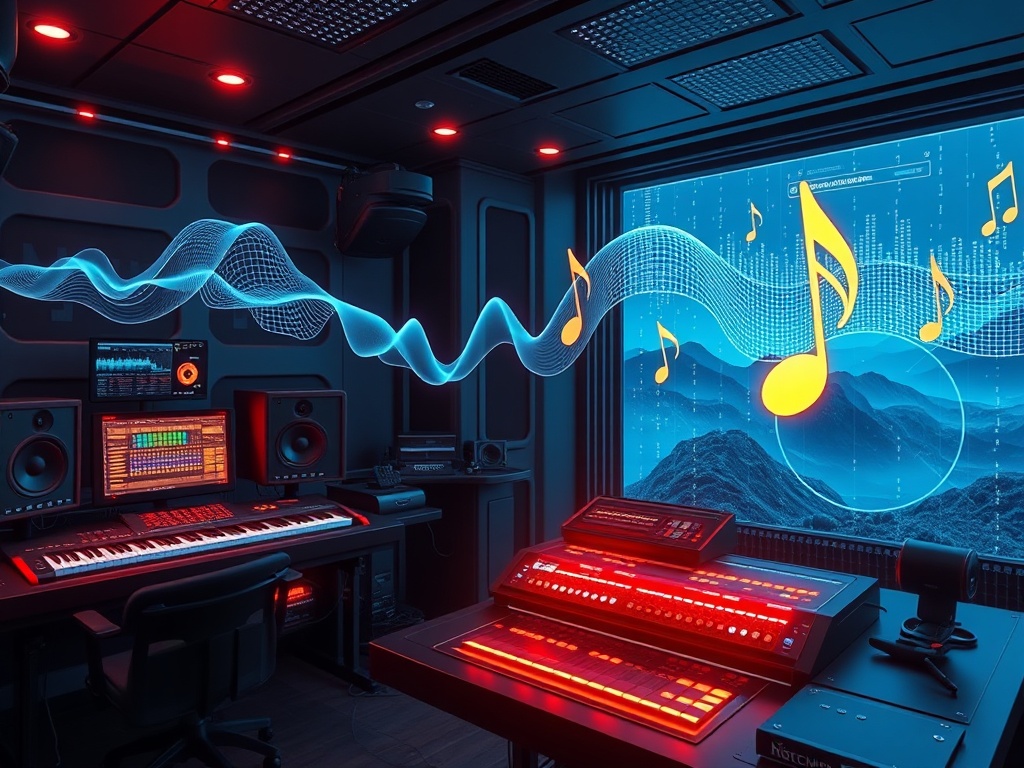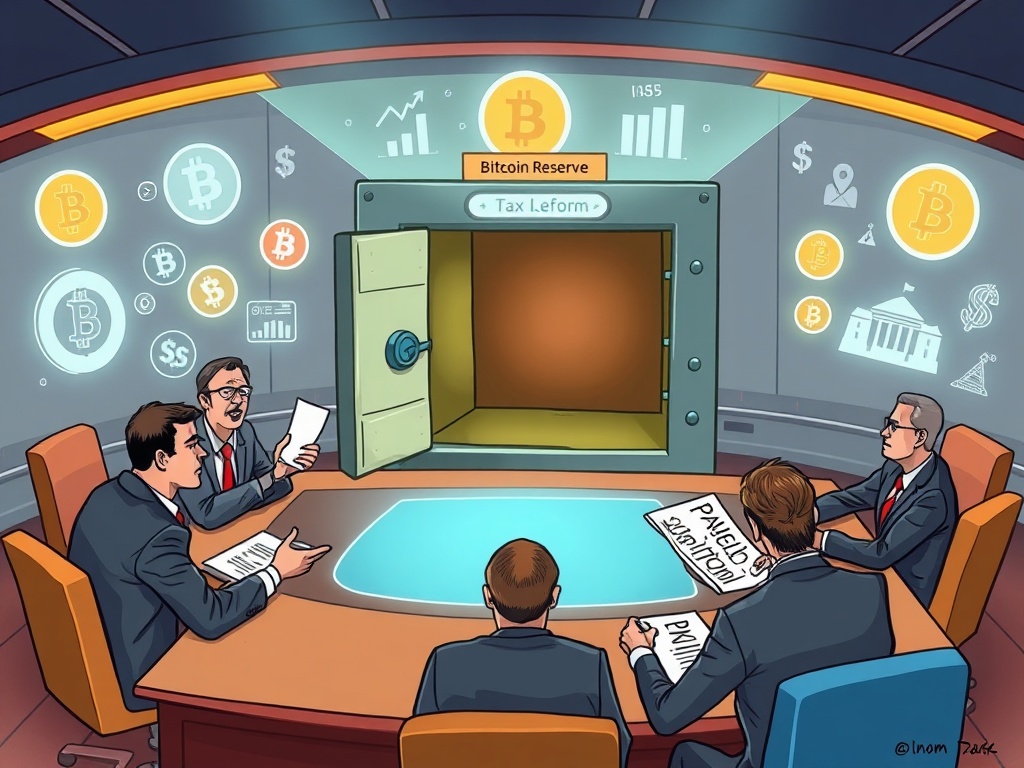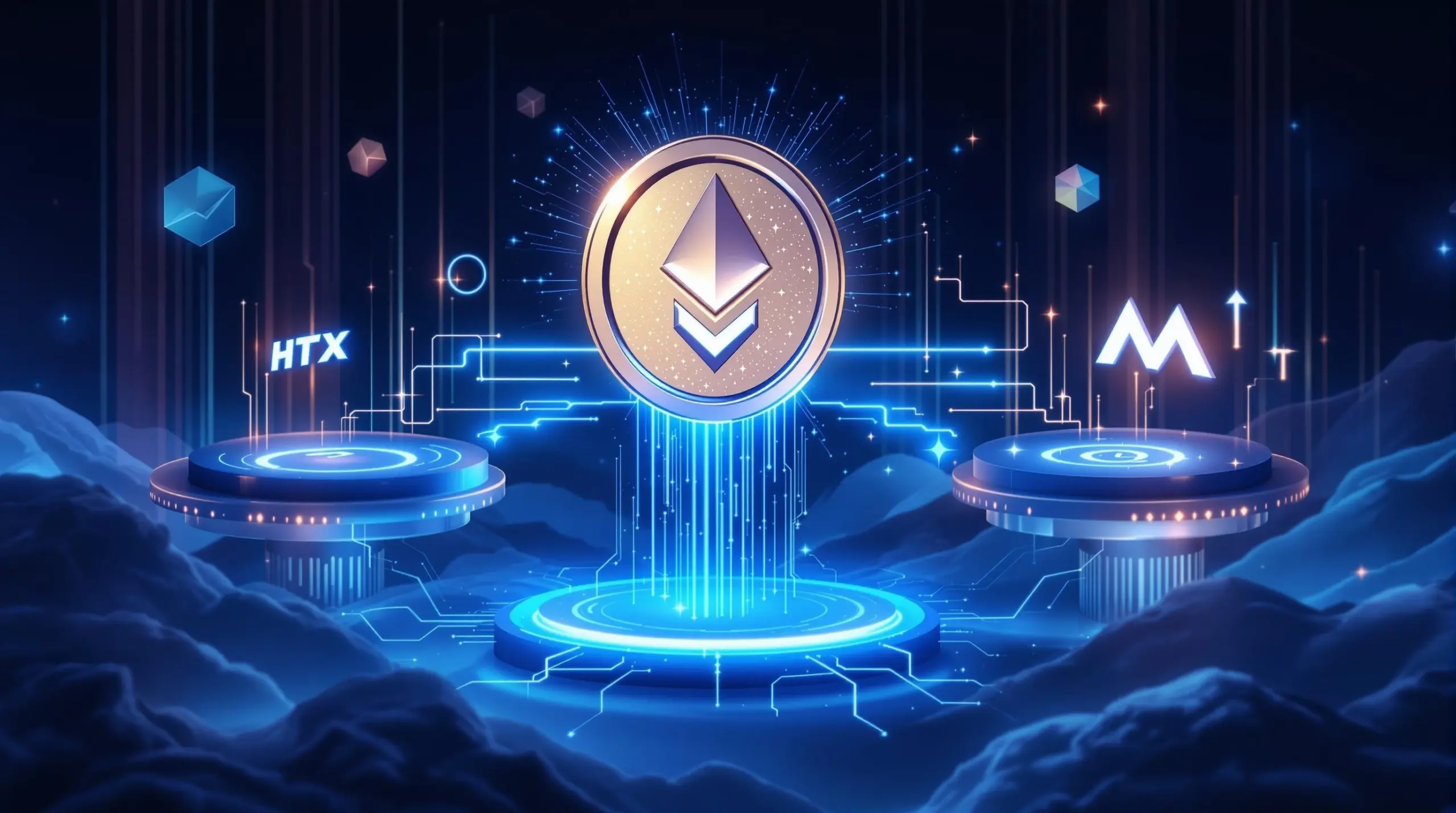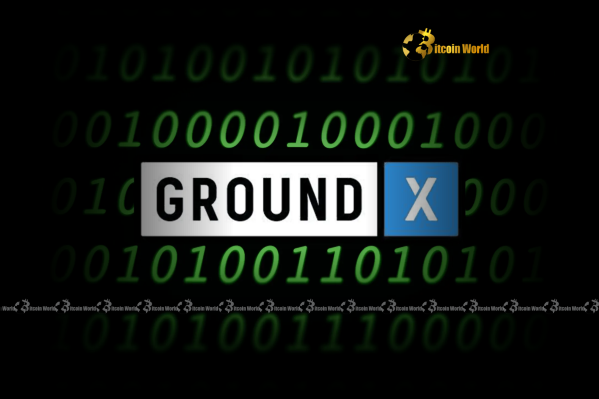BitcoinWorld

ElevenLabs Unleashes Revolutionary AI Music Generator: Navigating Copyright in the Generative AI Era
The world of technology is constantly evolving, and for those deeply invested in the transformative power of cryptocurrencies and blockchain, the parallels with other disruptive innovations are striking. Just as decentralized finance challenges traditional banking, artificial intelligence is reshaping creative industries. A recent groundbreaking announcement from ElevenLabs, a leading name in AI audio, has sent ripples through the music industry: the launch of its new AI music generator, which the company boldly claims is cleared for commercial use. This development isn’t just a technical marvel; it opens up fascinating discussions about digital ownership, intellectual property, and the very nature of artistic creation in the age of generative AI.
ElevenLabs’ Bold Leap into AI Music Generation
For three years, ElevenLabs has solidified its reputation as a unicorn in the AI audio space, primarily focusing on cutting-edge text-to-speech AI products. Their tools have revolutionized everything from creating realistic voiceovers for content to enabling seamless conversational bots and sophisticated speech translation. Now, they’ve taken a monumental step beyond spoken word, venturing directly into the realm of music. The unveiling of their AI music generator on Tuesday marks a significant expansion, promising to empower users to create original musical compositions with unprecedented ease. This move positions ElevenLabs not just as an audio utility provider, but as a direct player in the creative arts, challenging existing paradigms and sparking vital conversations about the future of digital content creation.
The core promise of this new tool lies in its accessibility and the claim of commercial clearance. For independent artists, content creators, and even large media houses, the ability to generate unique, royalty-free music could be a game-changer. Imagine a podcaster needing a custom intro theme, a game developer requiring dynamic background scores, or a small film studio seeking bespoke soundtracks without the prohibitive costs and complexities of traditional music licensing. ElevenLabs aims to democratize music creation, putting powerful tools directly into the hands of innovators. However, this exciting prospect comes with its own set of complexities, particularly concerning the ethical and legal frameworks surrounding AI-generated content.
The Sound of Innovation: What is an AI Music Generator?
At its heart, an AI music generator is a sophisticated artificial intelligence model trained on vast datasets of existing music. By analyzing patterns, melodies, harmonies, rhythms, and instrumentation, the AI learns to “understand” musical structure and then generate new compositions based on prompts or parameters provided by the user. Think of it as a highly advanced musical apprentice that can compose in various styles, moods, and genres. ElevenLabs, building on its strong foundation in AI audio, likely leverages similar deep learning techniques that have made its text-to-speech models so successful, adapting them for the nuances of musical expression.
To showcase the capabilities of their new model, ElevenLabs shared several samples of its AI-generated music. One particular example that garnered attention featured a synthetic voice rapping, reflecting on themes of ambition and journey, from “Compton to the Cosmos.” While technically impressive, this specific sample immediately highlighted one of the most contentious issues surrounding AI music: the emulation of lived human experience. Hearing a computer articulate narratives deeply rooted in specific cultural and personal histories, like those explored by artists such as Dr. Dre, N.W.A., and Kendrick Lamar, raises profound questions about authenticity, appropriation, and the very soul of artistic expression. This example underscores the fine line AI companies must walk when developing tools that can mimic human creativity so closely.
The technology behind these generators is complex, often involving neural networks that can predict the next note or chord in a sequence, or even generate entire multi-instrumental tracks. Here’s a simplified breakdown of how such a system generally operates:
- Data Ingestion: The AI is fed millions of hours of music across genres, styles, and instruments. This forms its “understanding” of music.
- Pattern Recognition: The AI identifies patterns, relationships between notes, chord progressions, rhythmic structures, and emotional tones within the data.
- Generation Algorithm: Based on user input (e.g., “upbeat jazz track,” “somber piano melody,” “hip-hop beat with a female vocal”), the AI uses its learned patterns to create new, unique musical pieces.
- Refinement: Often, users can further refine the generated output, adjusting parameters like tempo, instrumentation, or mood, guiding the AI towards the desired result.
ElevenLabs’ expertise in crafting natural-sounding voices suggests their music generator might excel in integrating synthetic vocals seamlessly into compositions, adding another layer of sophistication to their AI audio offerings.
Navigating the Minefield of Music Copyright and AI
The rapid advancement of generative AI in creative fields has inevitably collided with the long-established frameworks of intellectual property and music copyright. This collision has led to significant legal battles, casting a shadow of uncertainty over many AI startups. Last year, the Recording Industry Association of America (RIAA), the powerful trade organization representing the U.S. music industry, filed high-profile lawsuits against AI music generation companies like Suno and Udio. These lawsuits allege that these companies trained their models on vast amounts of copyrighted material without permission or compensation, a claim that strikes at the heart of fair use and artistic ownership.
The RIAA’s stance is clear: unauthorized use of copyrighted music for AI training constitutes infringement, potentially devaluing the original works and undermining the livelihoods of human artists. These legal challenges highlight a critical dilemma: how can AI learn to create music without drawing from the existing body of human-created work? And if it does, how should the creators of that original work be compensated or acknowledged? The outcome of these lawsuits, which reportedly involve ongoing discussions about licensing deals between the AI companies and major record labels, will set crucial precedents for the entire generative AI landscape.
For ElevenLabs to claim its AI music generator is “cleared for commercial use” in such a litigious environment is a bold statement. It suggests they have proactively addressed these concerns. The controversy around the “Compton to the Cosmos” rap sample further emphasizes the ethical tightrope AI companies walk. While the technology can mimic, the lived experiences and cultural contexts that shape human art are inherently non-replicable by algorithms. This raises questions not just of legality, but of authenticity and respect for artistic legacy. The industry is grappling with defining what constitutes “originality” when algorithms are doing the creating, and how to protect the rights of human artists whose work forms the foundation of AI’s learning.
ElevenLabs’ Strategy: Licensing Deals for Generative AI Training
ElevenLabs’ confidence in its “commercial use” claim stems from a proactive and strategic approach to addressing music copyright concerns. Alongside the launch of their new model, the company announced significant licensing deals with two major digital publishing platforms for independent musicians: Merlin Network and Kobalt Music Group. These partnerships are crucial, as they grant ElevenLabs access to vast libraries of licensed material for AI training. This stands in stark contrast to the accusations leveled against Suno and Udio, who are alleged to have used unlicensed data.
Merlin Network is a global digital rights agency representing a massive collective of independent record labels and distributors. According to their website, their roster includes music from incredibly diverse and influential artists such as Adele, Nirvana, Mitski, Carly Rae Jepsen, and Phoebe Bridgers. Kobalt Music Group is another powerhouse in music publishing, representing a wide array of stars including Beck, Bon Iver, and Childish Gambino. By securing agreements with such prominent entities, ElevenLabs is attempting to establish a legitimate and ethical pathway for training its AI music generator.
However, the exact terms of these deals have not been disclosed, leaving several questions unanswered. It’s unclear whether these agreements specifically cover the use of every artist’s music within these catalogs for AI training, or if there are opt-out clauses for artists. The transparency around how artists are compensated and whether they retain any control over the use of their work for AI training remains a critical point of discussion for the broader industry. These deals represent a potential blueprint for how AI companies can navigate the complex intellectual property landscape, moving towards a model of collaboration rather than confrontation. They suggest a future where AI development is intertwined with fair compensation and licensing, rather than relying on the unauthorized scraping of data.
The Future of AI Audio and Creative Expression
The emergence of advanced AI audio tools, particularly generative AI for music, heralds a new era for creative expression. On one hand, it promises unprecedented accessibility to music creation, potentially fostering a boom in unique soundscapes for various applications, from gaming to marketing. It could empower a new generation of “prompt-artists” who guide AI to realize their musical visions, without needing years of instrumental training or expensive studio time. This democratizing effect could lead to a proliferation of niche genres and personalized sonic experiences.
On the other hand, the ethical and economic implications are profound. How will human artists adapt? Will AI-generated music flood the market, devaluing human-made art? The debate extends beyond copyright to the very definition of artistry. If an AI can create a song indistinguishable from a human composition, what does that mean for the human creative spirit? These are not easily answered questions, and the industry is still in its nascent stages of defining norms and regulations.
The path ElevenLabs is taking, with its emphasis on licensing and commercial clearance, suggests a move towards a more sustainable and legally sound model for AI in creative industries. This approach, if successful, could become a standard, encouraging other AI developers to seek partnerships with rights holders rather than risking litigation. As these technologies mature, we can expect continued innovation, but also ongoing discussions and potential legal battles as society grapples with the impact of AI on creativity, ownership, and the human element of art.
Conclusion: Harmonizing Innovation with Ethics
ElevenLabs’ launch of its commercially-cleared AI music generator is a significant milestone, pushing the boundaries of what’s possible with artificial intelligence in the creative domain. It showcases the incredible advancements in AI audio technology and its potential to democratize music creation. However, as with all powerful technologies, it arrives accompanied by a complex set of challenges, particularly concerning music copyright and the ethical implications of generative AI. The proactive steps taken by ElevenLabs through its licensing deals with Merlin and Kobalt offer a glimpse into a potential future where innovation and intellectual property rights can coexist. As the digital landscape continues to evolve, the ongoing dialogue between technologists, artists, legal experts, and the public will be crucial in shaping a future where AI enhances human creativity responsibly and ethically, ensuring that the rhythm of progress is always in harmony with the rights of creators.
To learn more about the latest AI market trends, explore our article on key developments shaping AI models features.
This post ElevenLabs Unleashes Revolutionary AI Music Generator: Navigating Copyright in the Generative AI Era first appeared on BitcoinWorld and is written by Editorial Team





